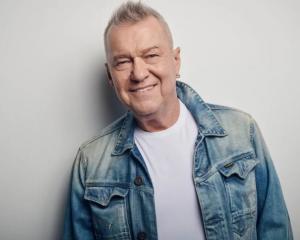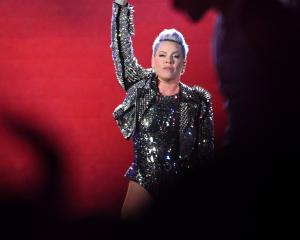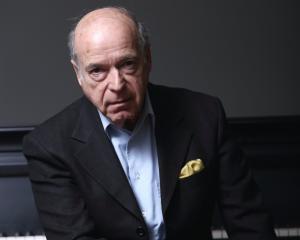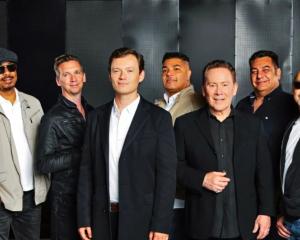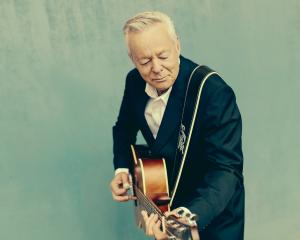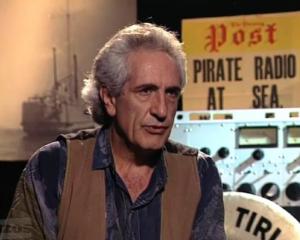Public Enemy's Chuck D is not holding back, writes Chris Riemenschneider, of the Minneapolis Star Tribune.
More than any other act, they gave hip-hop its social conscience - the Bob Dylans of the rap world, if you will. They also had a big hand in rock fans taking rap music seriously. And they scared a lot of people.
When you remember all those facets of Chuck D and Public Enemy, it's no surprise that the pioneering New York rap troupe found no place for themselves in today's corporate-run, fluff-catering, mind-numbing mainstream hip-hop industry.
That was just one of the things Chuck D discussed in a phone interview to promote the Hip-Hop Gods Tour.
An all-star revue featuring Public Enemy and eight other rap acts that date back to the '80s - including Monie Love, the X-Clan and Schoolly D - Hip-Hop Gods is an extension of HipHopGods.
Rapstation.com, one of several websites that Chuck is involved in to give veteran hip-hop artists a platform to create and promote new music. Another of those sites, distribution aggregator SpitDigital.com, is how Public Enemy released two new albums over the past four months.
These new-era platforms seem ironically timed to the other big news about Public Enemy: Chuck and his cronies are on the ballot for the Rock 'n' Roll Hall of Fame, 25 years after the release of their debut album Yo! Bum Rush the Show.
Even more than N.W.A. (also on the ballot), they seem like a shoo-in to be the fourth rap act to hit the hall, after Run-DMC, Grandmaster Flash & the Furious Five and the Beastie Boys, who were inducted by Chuck himself at last year's ceremony.
The rapper pointed to some of the hall's biggest names for what he said is ''racist treatment of our legacies by the music industry''.
''I think it's time for classic hip-hop to start getting treated more like classic rock,'' said the real-life Carlton Ridenhour, now 52.
''There are too many radio stations to count still playing the Beatles and the Stones and Led Zeppelin, but there aren't any still playing Run-DMC and LL Cool J and Public Enemy.
''I think we're as classic as Magic Johnson and Kareem Abdul-Jabbar,'' he concluded with a laugh.
Most hip-hop fans would agree with Chuck's assessment of Public Enemy, which he created with high-wire sidekick Flavor Flav while they were attending Adelphi University on Long Island in New York. After joining Run-DMC and the Beasties on Rick Rubin's fledgling Def Jam label to release Yo! Bum Rush the Show, the group quickly put out two more incendiary and revered albums, It Takes a Nation of Millions to Hold Us Back and Fear of a Black Planet.
Controversy came hand in hand with success. With its militaristic stage shows (guns included), radical politics and blunt deliveries, Public Enemy struck a combative stance epitomised in its anthem Fight the Power - a song that played a pivotal role in Do the Right Thing, Spike Lee's Oscar-nominated 1989 drama about the racial divide.
''None of it was ever contrived in any way, or done just for the sake of stirring up controversy and getting attention,'' Chuck recalled.
With a slight laugh, he added, ''You gotta remember: In the Reagan and first Bush era, any black person who raised their voice was considered controversial. So it really wasn't hard to get that kind of attention.''
He addressed one specific controversy circa 1989, when one of the group's DJ/producers, Professor Griff, was accused of making anti-Semitic statements while discussing the Middle East. Griff is the only original member still active in Public Enemy's Bomb Squad production crew.
''The real controversy there was: 'Why is this black man talking about something as intellectually challenging as Israel and Palestine? Go back to talking about the less consequential things rappers and DJs are supposed to talk about'.''
Of course, Chuck believes that popular hip-hop has gone back to being inconsequential: ''I just don't believe that any of these cats believe in what they're spitting about anymore.''
Which led him to Minneapolis. He is a fan of Rhymesayers co-founder Slug's work in Atmosphere (''just a true original'') and he heaped praise on another of the label's stars, Brother Ali.
''Now there's a guy you can tell believes in what he's saying 150%,'' he said of Ali, who got Chuck to guest on his Us album and repaid the favour by appearing on one of the new Public Enemy records.
''He has a voice like Ray Charles. It's authentic, and you know it when you hear it. It's full of conviction and passion.''
Those qualities still define Public Enemy, too, as heard on both of the new albums, Most of My Heroes Still Don't Appear on No Stamps and The Evil Empire of Everything. Chuck's and Flavor's distinctive rapping styles are unchanged, but the themes reflect contemporary issues, and the production has received a reboot. You'd be surprised by how much sonic punch these records deliver.
They're the group's first full-length releases in five years. During that time Flavor Flav became a reality-TV series star, a fried-chicken restaurant owner and something of a punch line - none of which caught Chuck by surprise.
''He has always been somebody to look at and wonder,'' he said with a laugh.
''We've been through so much over the years, none of that had any effect on our relationship.''
Public Enemy remaining active reflects something missing in today's hip-hop, he said.
''That's one thing that has spoiled rap as an art form, I think, is everybody only doing it by themselves and for themselves.
''You can't replace the chemistry that comes from being in a group.
''One-on-one, there are a lot of other rappers who are better than me. When I'm with my group, though, no-one can touch me.''



